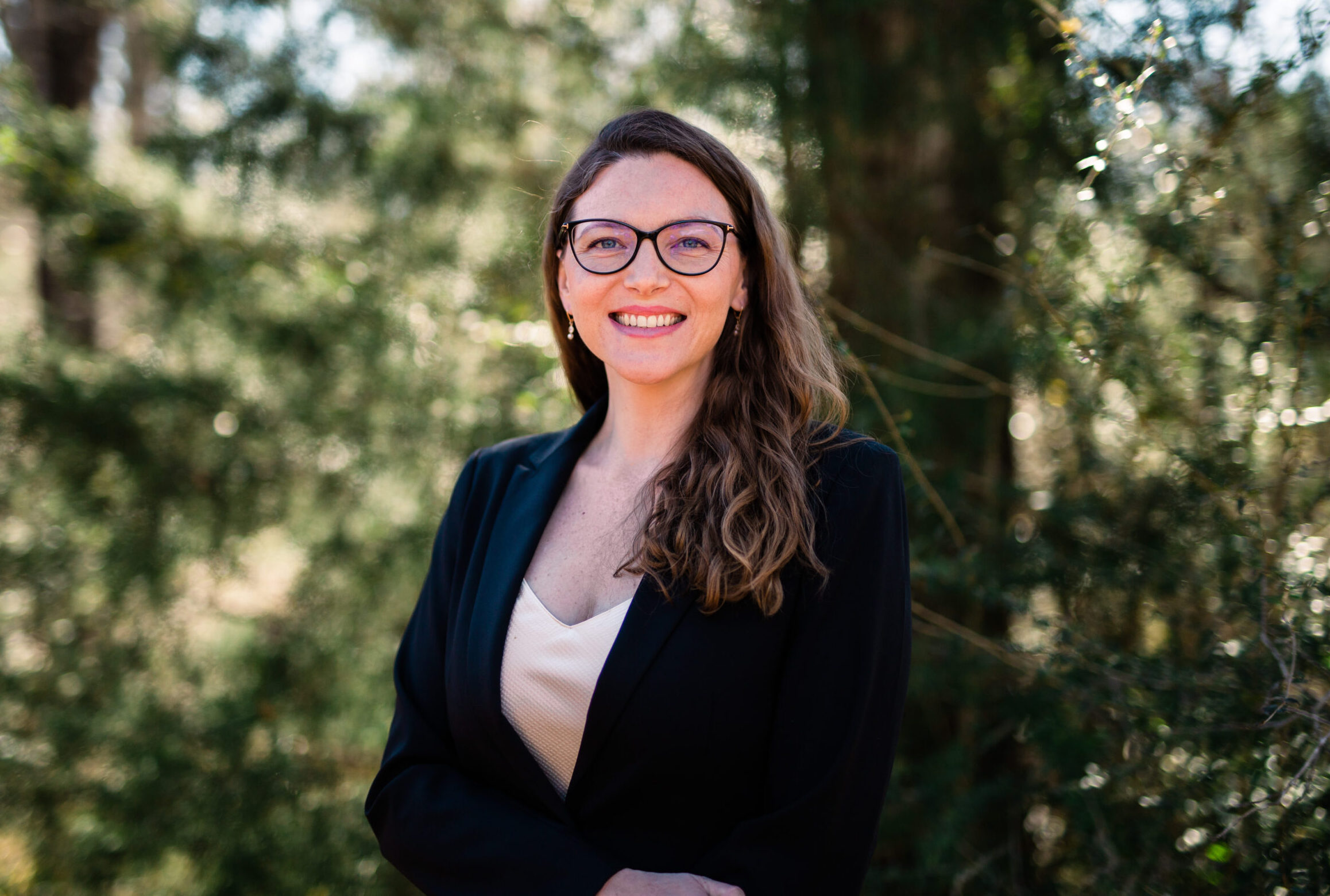For SOTW Bryan-College Station Chapter member and conservation law attorney Kathryn Tancig, her love of conservation and Texas runs deep. Though originally from Florida, she inherited a love of the Lone Star state from her mother who comes from a long line of family that calls Athens, Texas home.

Kathryn’s love of nature and all things outdoors was ever-present during her childhood. If her mother ever needed to find her, she knew to look to the trees before the living room couch because Kathryn’s curiosity always led her outdoors. Her interest in conservation really took shape in high school, when she chose to take AP environmental science and learned all about ecosystems.
“My mind was blown that there was this whole area of science,” said Tancig. “I remember googling ‘environmental law’ when I was 16 years old. Right then, I realized this is what I wanted to do.” A few short years later, she was accepted to and later graduated from Vermont Law School, the number one environmental law school at the time. While her legal career in Florida began in the arena of child support and family law, she continued to pursue conservation as a volunteer, including her appointment as Chairman of the Land Conservation Board for the Alachua County Board of County Commissioners right before a successful bond campaign established a $90 million fund for the purchase of open space.
Following this success, Kathryn made the leap into practicing conservation law full-time after she was recruited to the Alachua Conservation Trust as Alachua County’s sole conservation land negotiator. Here, she structured and negotiated conservation deals funded by the County. Kathryn also designed and taught a real estate transactions practicum for the University of Florida Levin College of Law as an adjunct professor.
Luckily for us—and all of Texas’ wild things and wild places—Kathryn’s then-boyfriend (and now-husband) was given an opportunity in Texas he couldn’t pass up, which eventually brought Kathryn to Texas, too. Together, they established roots in College Station and are now raising a little Texan of their own.
“In Florida, I was working for the land trust, but I was also working with the landowners. I had always been a private practitioner, and there I had to go out of my private practice to get into conservation. When I came to Texas, I was finally able to find my way back to the private practice I envisioned, where I could deal directly with private landowners here in Texas.” Kathryn established Tancig Law in 2021 and now focuses her practice on closing conservation easements, resolving real estate matters, and implementing conservation oriented public-private partnerships.
Her favorite part of the job? “Working with landowners directly. Educating and championing their wishes. It’s a very special landowner who is willing to gift their easement rights not just to the land trust and their family’s future generations, but to all Texans. When a landowner conserves their land in perpetuity with a conservation easement, I am eternally grateful to each of them, and I am so lucky to be able to work with private landowners who want to preserve their land.”
As for her highest hopes for the future of Texas, “I would like to see more land protected. I think it’s important for kids to have opportunities to access nature through Texas parks, but I also think it’s really important for private lands to remain open and undeveloped. Ideally, I would like landowners to be compensated for their conservation lands at development prices. This would help to ensure that our Texan way of life is preserved for future generations.”
And, from Tancig’s perspective, there’s much cause to be hopeful. New legislation introduced this month could put historic land and conservation funding on the ballot this November. The recent introduction of HB 3165 and HJR138 hopes to establish the Texas Land and Water Conservation Fund. Through the established conservation fund, a governing board would provide grants for existing programs and projects that would preserve our water resources, agricultural lands, and wildlife habitats and provide additional outdoor recreational opportunities for all Texans.
“I think it’s very important for our generation to be an active part of conserving Texas. Supporting this bill and helping to get it passed is just one way every individual can effect real change.”
Learn more about Tancig Law and read Kathryn’s latest blog series, Conservation Easements 101 .




